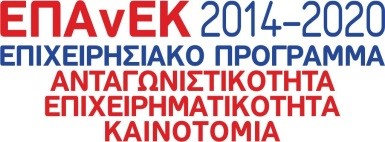Enhance Contract Management with Artificial Intelligence

Contract management is the process of creating, executing, and managing contracts efficiently, and in coordination with the applied laws and regulations. Managing the life cycle of a contract requires the cooperation of several employees to draft, negotiate, approve and sign it, as well as ensure its compliance with the agreed terms. These tasks are often time-consuming, error-prone, inefficient, and require increased human effort.
Paula Doyle, Chief Legal Innovation Officer at the World Commerce and Contracting Association (WorldCC), claimed that inefficiencies in the current trade contracting process likely cost the global economy more than $1 trillion annually.
She arrived at this estimation by summing up the significant losses recorded in firms experiencing problems in contract management effectiveness in comparison to best-in-class firms.
Also, poor contract management leads to long delays in signing a new contract, recording a difference of almost 10 days in the management cycle. Correspondingly, the rate of buyer withdrawal also increases by up to 57%, due to the delay in the process of drawing up, negotiating, and signing the contract.
In recent years, with the rapid development of technology, artificial intelligence (AI) has emerged as a powerful tool to improve the efficiency and effectiveness of contract management processes. Artificial intelligence can be used to:
1. automate and
2. rationalize
various tasks related to the creation, execution and management of contracts, including drafting, negotiation, execution and monitoring. .
By using artificial intelligence ot perform these task, organizations can:
· reduce the time and effort required to manage contracts;
· increase the accuracy, security and consistency of contract terms,
therby significantly improving the overall efficiency of the contract management process.
In this article, we will explore the various ways in which you may use artificial intelligence in contract management and the benefits that organizations can gain from its use. For each phase of a contract’s lifecycle, “smart digital assistant” applications are now being developed that staff can leverage to do their jobs faster and more accurately.
Drawing a new contract
One of the key ways you can use AI in contract management is in automated contract writing. By analyzing many existing contracts, AI can identify common clauses and terms that it can leverage to automatically create new contracts. The creation of a standard contract text (a template document) can save significant time and effort by allowing users to quickly create new contracts that are compatible with the relevant laws and regulations governing the type and subject matter of each contract. An AI application trained on a large volume of past contracts can also suggest clauses based on the specific needs and requirements of the parties involved, helping to ensure that contracts are tailored to the unique needs of each situation.
Negotiating new contracts
Artificial intelligence can also be leveraged to streamline the process of negotiating a contract. In this phase, by analyzing and comparing different versions of a contract, an AI application can highlight potential areas of conflict or disagreement and suggest possible solutions. For example, you can use it in order to propose terms to address disputes and ultimately lead to a reduction in the time and effort required to reach an agreement and also significantly reduce the legal, commercial and financial risk of the final contract. International consultants have estimated that the average time to find a specific term in a contract is around 90 minutes for each contract, so for large organizations managing hundreds of contracts with customers, suppliers, and partners, automated term checking, as well as new term proposals, is estimated to significantly speed up the negotiation phase.
Executing and monitoring contracts
Once you sign a contract , artificial intelligence can automate the process of managing and monitor it. For example, you can use AI to extract key terms and obligations of the counterparties from a contract e.g., delivery dates, payments, etc. You may also use it to create relevant documents such as invoices and purchase orders and track the status of these documents in real-time to ensure that contracts are performed as intended. Accordingly, by monitoring the execution of a contract the system may warn the appropriate executives in time of any problems or deviations from the agreed terms.
AI and KPIs
In addition to automating contract management, you can also use AI to monitor contract key performance indicators (KPIs) in real time. For example, a contract management application that leverages artificial intelligence technologies can be “trained” to monitor the delivery of goods or services. It can also facilitate compliance with standards or even legislation, and identify parameters that may affect the successful execution of a contract. By providing real-time information about contract performance, AI can help parties proactively address potential issues and ensure that contracts are performed as intended.
Benefits of AI at contract management procedures
Streamlining and automating tasks related to the creation, execution, and management of contracts by leveraging artificial intelligence can provide significant benefits for organizations. It can enhance:
· productivity,
· accuracy,
· compliance,
· efficiency,
· risk management of contract management procedures.
The various business benefits that organizations can derive from the use of artificial intelligence in contract management fall into the following categories:
1. Productivity: By automating tasks such as contract writing, negotiation, execution, and monitoring, AI can help organizations streamline contract management processes and reduce the time and effort required to manage of contracts.
2. Accuracy: AI can help increase the accuracy and consistency of contract terms by identifying and correcting errors and omissions in real-time.
3. Compliance: By automating the process of tracking and monitoring contract performance, AI can help organizations ensure compliance with contract terms and related laws and regulations.
4. Efficiency: By providing real-time information on contract performance and alerting parties to potential issues, AI can help organizations improve the overall efficiency of their contract management processes.
5. Reduced risk: The use of AI can help reduce the risk of errors and omissions in contract management, as AI can identify potential issues and deviations from agreed terms in real time.
In conclusion, the use of artificial intelligence (AI) in contract management can provide significant benefits for organizations. Giving an example, it can be used to create contract templates, analyze and compare different versions, extract key terms and conditions and create relevant documents. Moreover, it can be used to monitor contract performance in real-time, helping organizations to reduce time and the effort required to manage contracts. Also, it increases the accuracy and consistency of contract terms and improves the overall efficiency of the contract management process.
Contract management with Papyros ECM platform
Papyros ECM is a powerful platform that works with artificial intelligence tools to improve contract management in an enterprise. Our platform automates and streamlines various tasks related to contract creation, execution, and management. Papyros ECM helps organizations improve efficiency, accuracy, compliance, effectiveness, and risk management in their contract management processes.
In addition to the benefits of using artificial intelligence in contract management, Papyros ECM also offers several other features and capabilities to help you manage your contracts more efficiently. These include but are not limited to:
1. Secure contract storage and organization: The Papyros ECM platform allows you to store and organize your contracts in a secure, centralized location. This 360 view makes it easy to access and manage your contracts from anywhere.
2. Collaboration and sharing: Papyros ECM includes powerful collaboration and document-sharing capabilities. These characterustucs allow you to collaborate with your team and other stakeholders to create, negotiate and execute contracts.
3. Version control: It also tracks changes to your contracts and keeps a record of all versions. This way, you may ensure that you always have access to the most up-to-date version of your documents.
If you are facing similar issues in managing large volumes of contracts, we will be happy to help. Let us show you how you can take advantage of the power of artificial intelligence to improve your contract management processes.



